Otago alumni in Fiji are at the centre of the country's response to the COVID-19 pandemic.
Fiji's COVID-19 Incident Management Team (IMT) represents Fiji's whole-of-government response to the pandemic and implements the Fiji Coronavirus Preparedness and Response Plan.
Otago alumnus Dr James Fong is General Manager of the IMT, while three other alumni, Dr Nashika Sharma, Dr Sainimere Boladuadua and Mr Vilimone Raqona work for the IMT's Planning and Information Pillar.
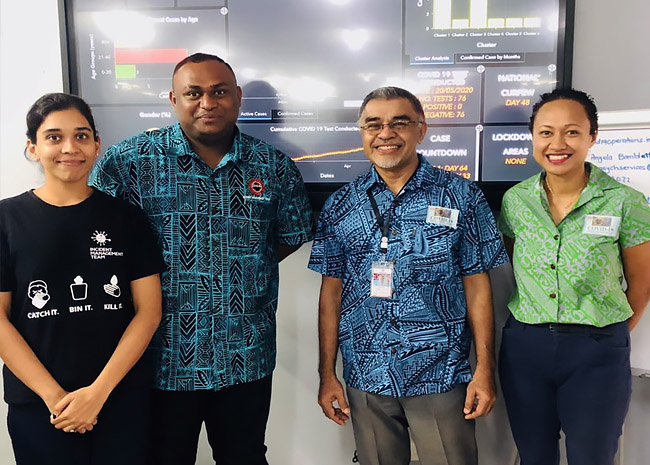
Otago Alumni at the COVID-19 IMT Unit in Fiji, (left to right) Dr Nashika Sharma, Mr Vilimone Raqona, Dr James Fong and Dr Sainimere Boladuadua
- Dr Fong is a graduate of the Fiji School of Medicine, now Fiji National University (FNU), and is currently Acting Permanent Secretary of Health. He received his Diploma of Obstetrics in 1997 and PGDip in Health Informatics in 2007 from Otago. Until last year he was Head of Obstetrics and Gynaecology and acted as the Medical Superintendent for the Colonial Memorial Hospital in Suva.
- Dr Sharma is head of the Planning, Information and Surveillance Pillar of the IMT, and completed a Master of Public Health at Otago earlier this year. Before being redeployed into the IMT she was Senior Medical Officer, Research, Innovation, Data Analysis and Management at the Ministry of Health and Medical Services.
- Dr Boladuadua, a Medical School and Master of Public Health graduate from Otago, is managing the implementation of the Surveillance Outbreak Response Management and Analysis Systems, an open source mobile eHealth system for the pandemic response, as well as other infectious diseases such as leptospirosis, typhoid, dengue fever and TB. This includes digitising and standardising what had previously been a paper-based outbreak response and management system.
Prior to her secondment to the IMT, Dr Boladuadua was the Project Lead for the Fiji Rheumatic Heart Disease Prevent and Control Programme. - Mr Vilimone Raqona, an Otago Master of Applied Science (Geographic Information Science) alumnus, is spearheading the GIS components for the IMT, including managing the COVID-19 database and the online web app used by the government for decision making.
Vilimone leads the Fiji Geospatial Information Team to execute the national Vanua GIS Project under the Ministry of Lands and Mineral Resources.
Dr Boladuadua says the impact of the pandemic is being felt at all levels of Fiji society, and especially the local economy.
“Tourism is the backbone of Fiji's economy and the closure of our borders has drastically reduced what is one of our main revenue earners, which has also resulted in unemployment for most hotel workers,” she says.
“Tourism business operators are taking the hit with unprecedented losses and some have been forced to sell their businesses.”
The imposition of geographical lockdowns and a national curfew has affected transport operators, the entertainment industry, food and beverages and access to other services. Workplaces are operating with reduced hours or work from home options, while schools have closed and students are required to continue their learning using online resources provided by the Ministry of Education and tertiary providers. People have had to draw from their superannuation funds to be able to meet the daily cost of living.
“What we need to be mindful of and will need to address is how effects of COVID-19 are shared among our community. History and literature show that COVID-19 will have differential impacts on people, with those with higher socioeconomic deprivation not faring as well as those who are less deprived and have more reserves,” says Dr Boladuadua .
“Fijians are resilient people. We get hit with natural disasters, most commonly tropical cyclones, but always manage to rebuild and get on with life.”
- Dr Sainimere Boladuadua
“Fijians are resilient people. We get hit with natural disasters, most commonly tropical cyclones, but always manage to rebuild and get on with life. COVID-19, although slightly different to what we expect and know how to prepare for, has had a similar effect. We've had a double whammy – by way of category four tropical cyclone Harold in the midst of the pandemic.”
On several islands, people lost their homes, their plantations and food sources were destroyed. These have had flow-on effects on food security, unsafe drinking water and sanitation, which are conditions for malnutrition and the spread of water-borne and vector-borne diseases such as typhoid and dengue.
In spite of all this, Dr Boladuadua says people in Fiji have found ways to deal with these disasters. People living in urban areas have started backyard gardens, families have had more quality time at home together, and a 'Barter for Better' Fiji Facebook group is using the traditional barter system to promote the exchange of items, food or services.
“Fijians are also deeply religious and one of their key default and coping mechanisms is to draw strength from their respective faiths.”
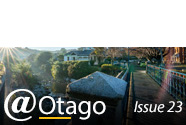
Also in this issue...

Otago and COVID-19: Playing our part (video)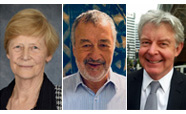
Top honours for Otago alumni
Your Story - A long and wonderful journey
Opportunities for alumni – Young Alumni Awards
Networks & events
Lecture hot picks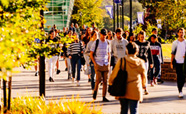
Supporting Otago – University community boosts Pūtea Tautoko support fund
Making a difference – New Otago Foundation Trust chair and generous Sargood Bequest grant
From the Archives – Discovery of strong family ties to the University
Why We ♥ Otago – Dental reunion film 'bittersweet' 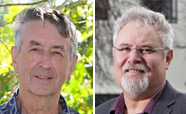
Alumni in the news